Our Commitment to Fair Wages & Safe Working Conditions
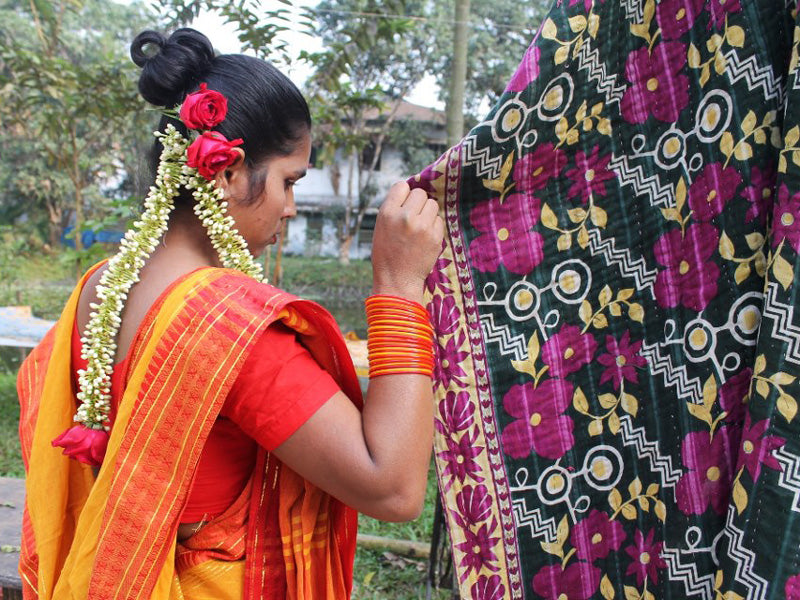
“Our Vision: One day all artisans in developing countries will earn a fair wage, be treated with dignity and respect, and be able to live a life of quality.”
These words are the very foundation on which Ten Thousand Villages stands. They are displayed on each employee’s desk as a daily reminder of why fair trade matters to so many people around the world. They drive us to go above and beyond the ethics of a typical business. And, perhaps most of all, they inspire us to keep the basic needs and the big dreams of our artisan partners in the forefront.
Why are we so committed to that vision?
Because without access to fair wages, people are more vulnerable to exploitation.
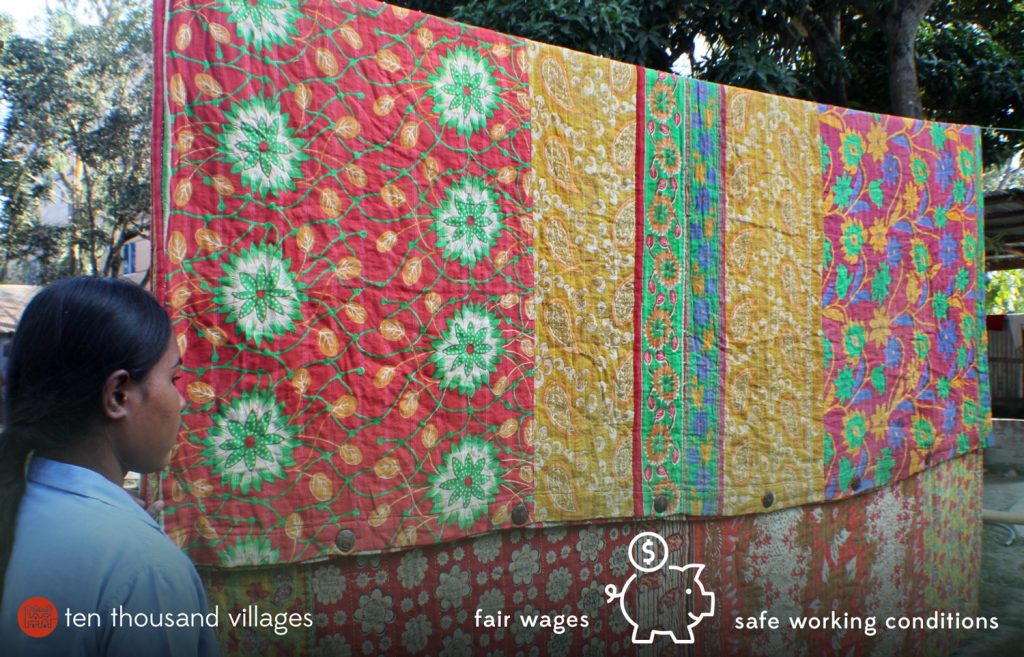
In Bangladesh, simply ensuring food at every meal is a challenge for many families. Thousands of women take jobs at dangerous, unregulated garment factories or resort to sex work as a means for survival. One of our partner groups, Sacred Mark, was founded to provide alternative opportunities for women who have come from a life of extreme poverty, trauma and abuse. The fair trade workshop employs graduates of a year-long program called Pobitra. Besides providing a safe and loving environment, it also includes handicraft training and classes about health and hygiene, mental health, human rights, peace and literacy.
It is a holistic approach. One that aims to equip women with the foundational skills they need to build a better life for themselves.
Pobitra is a safe haven for women like Piya*, who was beaten and forced into an early marriage at age 15 when her father discovered she was being taught to read. Her new husband almost immediately left her to go live with another woman, which left Piya in a desperate situation. She filed for divorce, but could not return to her father’s house.
After finding shelter in a railway station, she resorted to prostitution in order to survive. For years she survived on the streets in this way, periodically finding ways to rent a room in which to stay or living temporarily with her family, and becoming a mother in the process. Eventually she found out about Sacred Mark and joined their training program. Now she has a steady, dignified job she enjoys and is thriving in a way she never thought possible. Piya has even started dreaming on behalf of her daughter, whom she hopes will one day be a designer.
As the women work their way through Pobitra’s programs, they are taught (sometimes for the first time in their lives) a marketable skill like sewing. Recycled saris are collected, cleaned, and patched together with love to create blankets, pillows, and even duvets. The nature of repurposed saris means that each is one-of-a-kind, and that colors and patterns vary wildly. Every item that is handcrafted by the women of Sacred Mark is as unique a treasure as the woman who made it. And every stitch is a step toward stability and safety.

Since 1946, Ten Thousand Villages has been committed to ensuring makers earn a fair, living wage in safe working conditions. We have regular conversations with each group we work with in order to agree together on fair prices. This is so we can confirm that they are covering their costs and building a sustainable business. We also regularly visit work spaces to ensure that safety standards are being met, and to offer strategies on which to improve. Whether it’s a workshop in Bangladesh, under a shady tree in Uganda, or a studio in Peru, we make sure our partners are thriving.

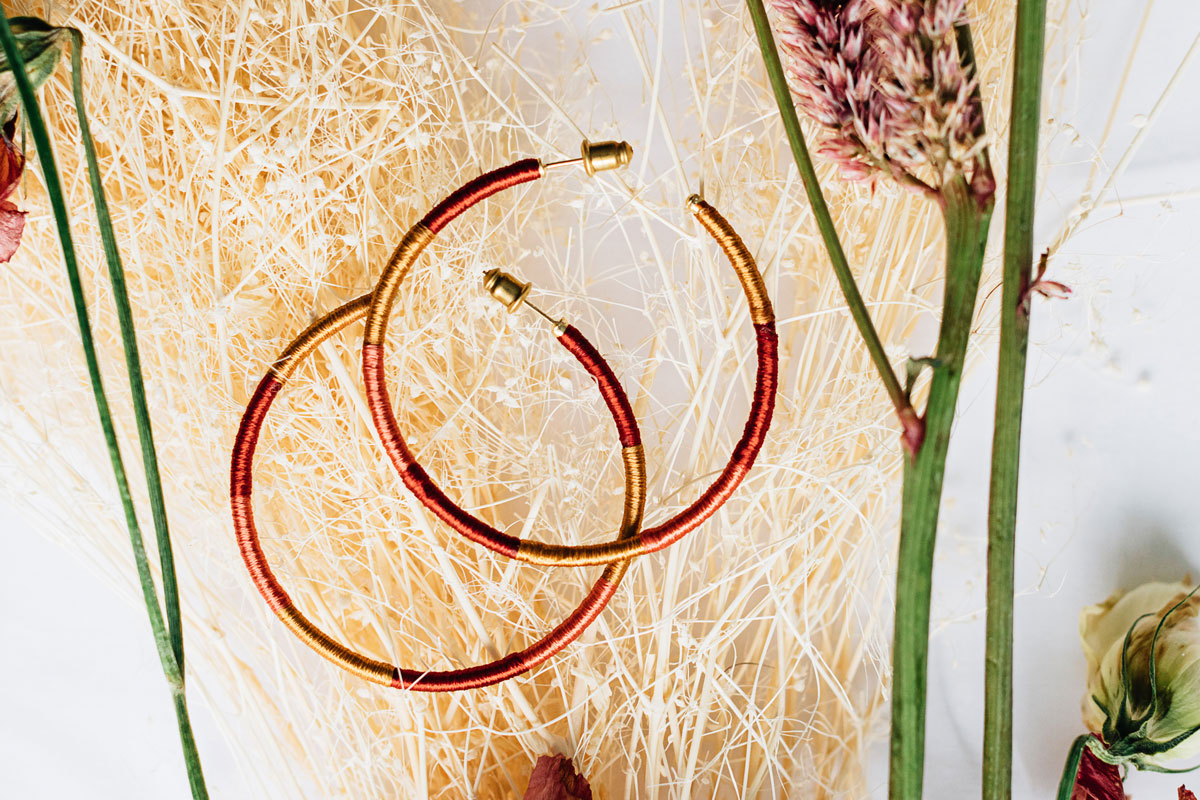
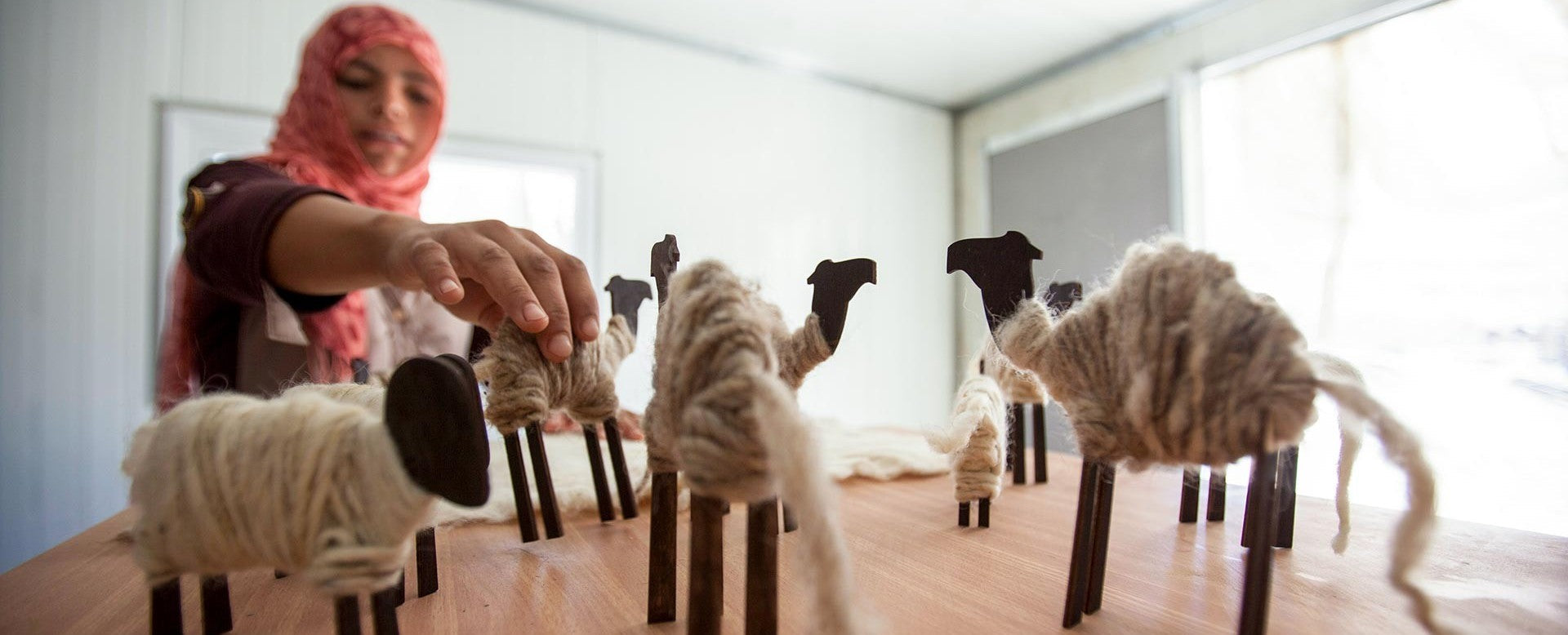
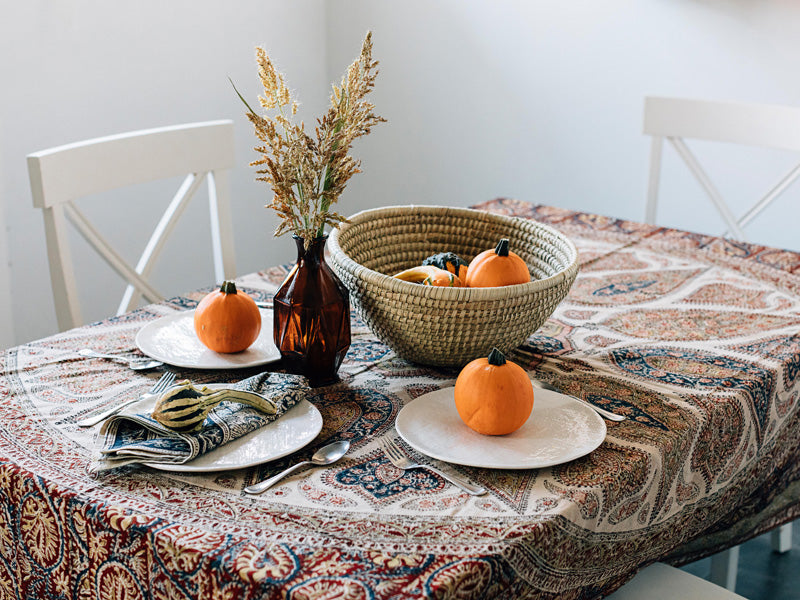
Comments